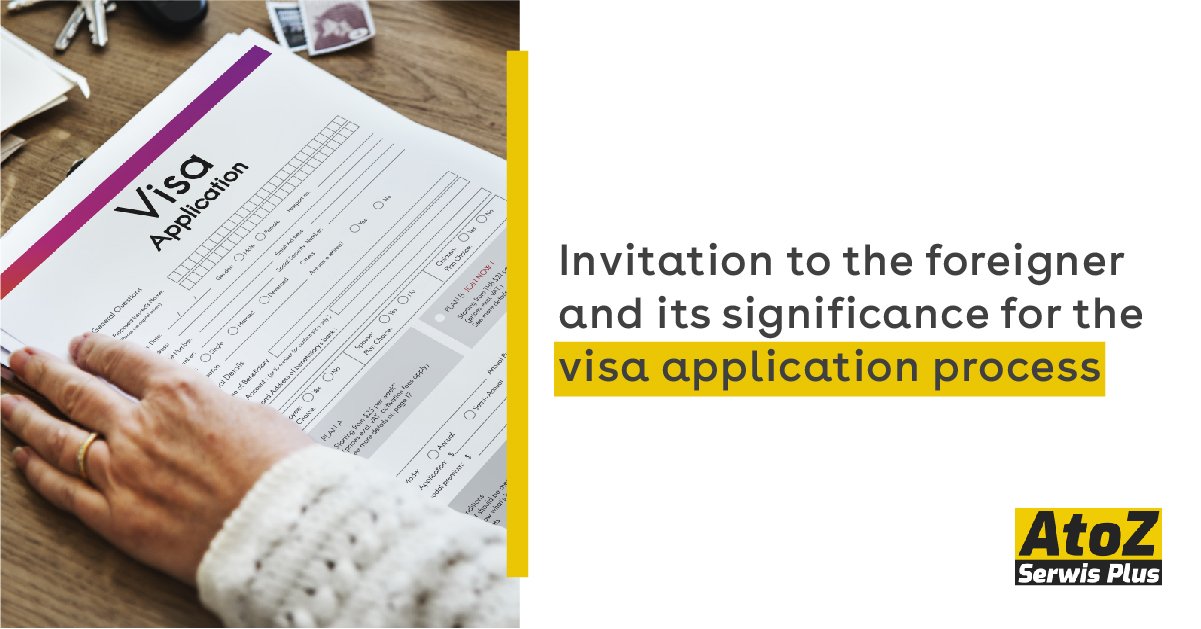

Invitation to the foreigner and its significance for the visa application process
If a citizen of a non-Schengen country wishes to enter Poland's territory but is not eligible for entry under the visa-free program or on the basis of certain documents (such as a residence card), they must apply for a visa.
The ability to demonstrate that a foreigner has the money to cover the costs of their intended stay in Poland as well as their return trip to their country of origin or transit is one requirement for receiving a visa. The foreigner can also be invited in order to satisfy this requirement.
General Knowledge
In a letter of invitation, the person extending the invitation attests to having enough money to cover all expenses related to the foreigner's (invited person's) intended stay in Poland, including lodging and food costs, as well as the costs of the return trip to the country of origin or residence, or the costs of transit to a third country that will issue an entry visa.
Who is able to extend an invitation?
An invitation could be sent out by
an individual who is a citizen of the European Union, Norway, Iceland, Liechtenstein, Switzerland, and, in some circumstances, the United Kingdom
a foreigner with a permanent residence permit or a residence permit for a long-term EU resident who had lived lawfully and consistently on Polish soil for at least five years prior to the invitation's issuing,
A foundation, association, ecclesiastical order, or other organization with or without legal personality as long as its headquarters are in Poland
Creating an invitation process
The individual who wants to extend an invitation to a foreign national, referred to as the inviter, makes an application to the provincial governor responsible for the invitee's domicile in which they detail, among other things:
- data identifying the inviter and the invited person,
- the purpose of the foreigner’s stay,
- the foreigner’s place of accommodation, or whether the inviter provides the foreigner with accommodation in his/her own dwelling,
- financial and earning capacity of the inviter,
- commitment to cover the costs associated with the foreigner’s stay.
Documents demonstrating the applicant's financial capacity and establishing the home's legal ownership must be submitted with the application.
When the application is approved, the provincial governor reviews it, issues an invitation, and records it in the register of invites.
How long does it take to issue an invitation and enter it in the register of invitations?
The provincial governor records the invitation's entry in the registry. Following an investigation, a decision on entrance should be made within 30 days, and in complex circumstances, up to 2 months.
The provincial governor's decision is appealable, however this must be done within 14 days of the decision's delivery date.
Is the invitation valid as soon as it is sent out?
No, the invitation doesn't go into effect until it is entered in the registry. You can only use the invitation and use it in the visa application process if it is entered in the registry.
How long is a valid invitation?
The invitation is good for the time frame stated therein, but not for more than a year.
Do invitations take the place of visas?
No, even if they have an invitation, foreign visitors still require visas to enter Poland. The issuance of an invitation and inclusion into the invitation register only transfer the burden of establishing that the foreign visitor has sufficient means for stay, return trip, transit, etc. to the invitation issuer. Only acquiring a visa gives the foreigner the right to enter Poland, hence the invitation may be submitted as an attachment to a visa application.





